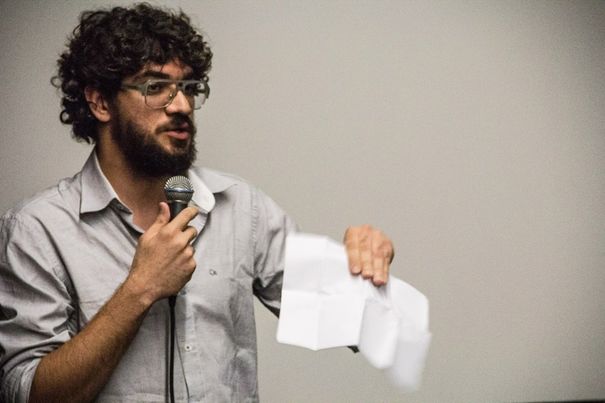Film Criticism in Times of Disaster
By Victor Guimarães

Victor Guimarães
It all started with an almost unconscious desire to continue the experience of films. It felt necessary to create short circuits in consumption, to keep some of the works alive and somehow interrupt the constant flow of oblivion that characterizes contemporary culture. I was eager to multiply the impact of films in words, to share it, to find the eyes and ears of others. As a student of journalism, I saw in traditional media – newspapers, print magazines, television, radio – an increasingly smaller space for art and thought. So, I became a voracious reader of online film journals, magazines and blogs. Soon it became clear for me that, in Brazil, the only space for regular film criticism – the one that deserves this name, the one that distinguishes itself from marketing or the mere opinion – was the internet. The film criticism I believe in is a sustained activity of free thought, which considers cinema an art capable of broadening our perceptions of the world, and thus must strive to live up to it.
Even sooner, it was already obvious that this was not a profession in Brazil, at least in the sense that those who need to work for a living often give that word: it was not a job, with a salary, stability and so on. In order to keep my desire alive and to be able to stay close to films in my everyday life, I started academic studies, became a teacher and a film programmer, doing also some translation to pay the rent. Then I realized that the only stable activity among all these was precisely the one that was not connected to money: in all those years I never stopped writing, although on very rare occasions I was paid for it. Nevertheless, I have always written for publications in which I could identify affinities with my understanding of the role of criticism: Cinética, Senses of Cinema, La Furia Umana, Desistfilm. It is very sad to note that the only way for a film critic to survive in Brazil is through an academic career or accumulating a myriad of other film-related work. At the same time, it was this non-reliance on money that allowed me to find pleasure in what I do and to create a substantial amount of independent critical writing.
During the last decade, it was possible to help create spaces of public debate, to foster the rediscovery of Brazilian film history through screening series, and to inhabit a vivid environment of free speech and constructive learning. Today, after two years living under a coup d’état and witnessing the disaster of the last national elections, everything we have come to call "Brazilian cinema" in the last ten years or so – a circuit of public funding for production, rising young talent, increasingly democratic universities, progressively better festivals – is about to collapse, in the face of the growing dilapidation of all sorts of cultural institutions, constant devaluation of art and open fascism in society. Thinking about the near future is terribly scary. I have one certitude, though: more than ever in my lifetime, we’ll need courage, strength, collective work and creativity, all these things that made me admire film critics and want to become one.

